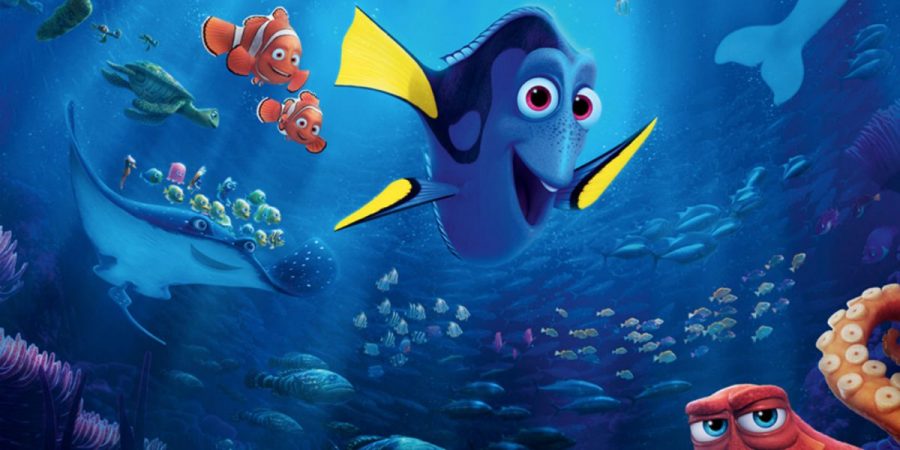For all their years of innovation, Pixar have really found a formula now. Perhaps it was getting into bed with Disney that did it. A rich sugar daddy insisting the sexy, bratty wild child give up their crazy ways in exchange for complete security. Apart from the sequelitis that has crept in, the stories are beginning to repeat.
Sure, Up had that extraordinary opening act that reduced grown men to howling wrecks, and Inside Out was praised for its dizzying inventiveness in service of a simple coming-of-age story, but on closer inspection so many of the plots boil down to a) I’ve heard of this wonderful place; let’s go there; or b) Someone is lost, we must find them. Toy Story, Toy Story 2, Finding Nemo, Up, Inside Out, and now Finding Dory all fit this loose road-movie template.
Due to this recent lack of infallibility, perhaps expectations weren’t as high for a revisit to Dory, Marlin, Nemo and co. Happily, what Finding Dory lacks in originality, it more than makes up for in the customary care, skill, and attention to detail for which Pixar is renowned. It is also highly progressive in its depiction of disability, even if the message is caked on like lard before a cross-Channel swim.
Dory, the blue tang lacking a short-term memory (a multi-faceted vocal performance by Ellen DeGeneres) gets lost while deciding to search for her parents, forcing Nemo and Marlin to search for her.
That’s about it story-wise, although the two strands allow for the introduction of all manner of colourful creatures. None are more so than Hank the octopus (or, ‘septapus’, since he’s missing a tentacle, as Dory helpfully points out). Proving that a company now in their third decade of features haven’t lost their touch, Hank is a wonder of fluidity and expression. He’s essentially animated silly putty, capable of stretching and contracting to fit any shape, and taking on any colour to match his surroundings. He’s also a lovably grumpy guts, voiced with infinite world-weariness by Ed O’Neill and his frustration, yet growing affection with the hyperactive, permanently confused Dory is one of the strong emotional cores of the film. The film doesn’t sugarcoat the difficulties of dealing with someone with a disability, and Dory is allowed to be frankly quite irritating on occasion.
Beyond Dory’s problem, and Nemo’s stunted flipper (a major plot point in the original), both Gerald and Becky, a sea lion and a common loon respectively with obvious learning difficulties, get their moment in the sun. Heavy-handed perhaps, but very much within the now lengthy Pixar tradition of positive, liberal messages.
It won’t perhaps be remembered as one of the very best the company have produced, but that’s hardly a criticism when that name has become synonymous with quality. Finding Dory is a warm, funny, technically-brilliant animation that adds to the themes and story of its much-loved predecessor.
